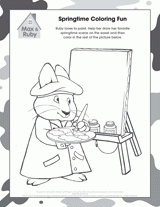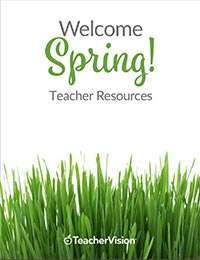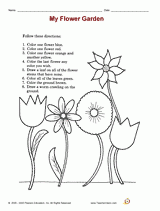Use a School Readiness Activity to provide early language thinking experiences for preschool children that will prepare them to do well in the early grades.
Grades:
Subjects:
Hearing and Creating Rhymes
Purpose/Skills
- To listen to, repeat, and match rhyming sounds
Materials
None
listen
sing
rhyme
(Optional) Read Golden Bear by Ruth Young, The Day the Goose Got Loose by Reeve Lindbergh, Cows Can't Fly by David Milgrim, or another rhyming selection.
Warm-Up
Get the children ready to use their ears and voices. Model a silly rhyme for children to repeat. Example:
| The cat is fat and that is that. |
| She got stuck in my mama's hat. |
| My mom began to stomp and shout, |
| But she couldn't get my kitty out. |
Procedure
- Ask children to listen while you say a rhyme. Choose a selection with strong rhymes. (You may also want to show children simple line drawings that illustrate the rhyme.) Make the activity fun so children are engaged and listening for the speech sounds. Example:Jack be nimble, quick as a fox. Jack jump over the little box.
- On the second round, invite children to join in with you. Repeat the rhyming words clearly and slowly to be sure children can hear and imitate the rhymes.
- For English Language Learners: have them act out any actions, such as jumping.
- Finally, help children make up their own rhymes. Try variations, such as, Jack be nimble, quick as a cat. Jack jump over the big black ____________(hat, bat, mat).
Enrichment
Read a rhyming book. If there is a predictable rhyme, pause and let children fill in the blank. Talk about the words that rhyme.
Observation Assessment
- Proficient - Child listens attentively and repeats the rhyme, matching the rhymes accurately, and completes a new rhyming phrase successfully.
- In Process - Child attempts to say phrases of the rhyme and is able to match some rhymes, but cannot contribute words to complete a new rhyme.
- Not Yet Ready - Child makes major errors in attempting to repeat the rhymes, and does not yet identify rhyming words.












